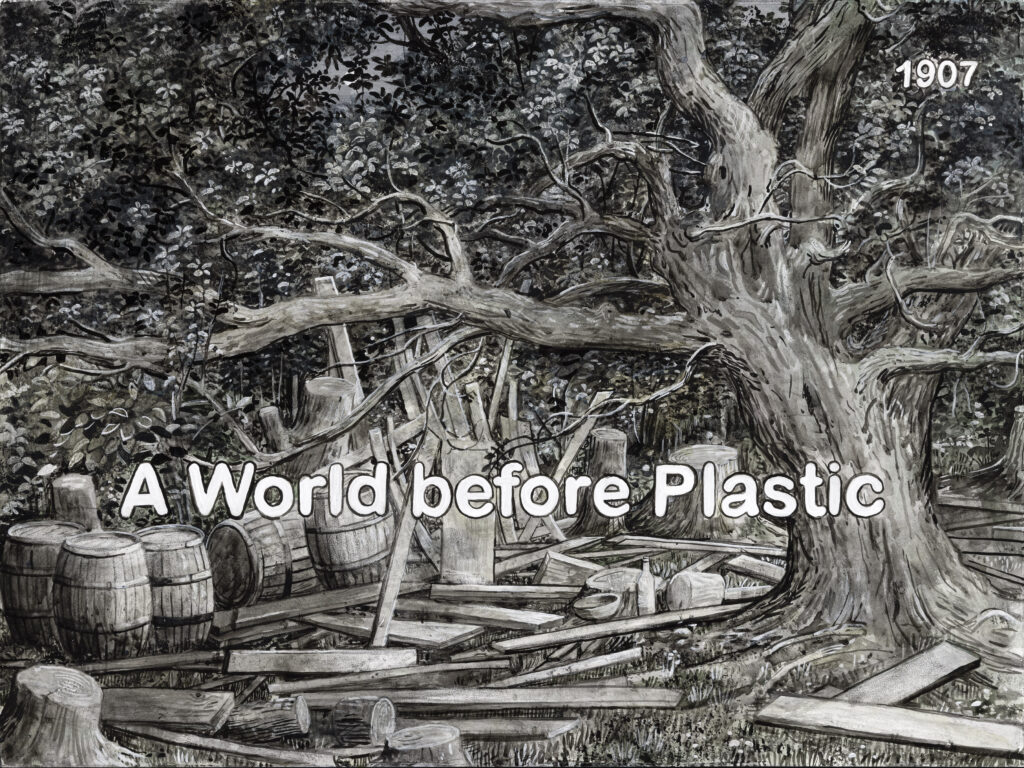Planet Earth
Before 1907

Within the past few months I have really become interested in zero-waste and low-waste style living and have done research on the impact plastic has had on our planet. There are moments I wish we could go back in time and live in a world where everything wasn’t wrapped in plastic in the grocery stores or bags were still all made of paper. I wish the world without plastic still existed. Amanda Eve C.
In 1907, Leo Baekeland invented Bakelite in New York. It was the first fully synthetic plastic, meaning it contained no molecules found in nature. Since then dozens of kinds of plastic have been invented and have come to be ever more widely used which has created environmental problems due to their slow rate of decomposition. At present plastic recycling is largely ineffective due to the difficulty of cleaning and sorting used plastic waste. From the 1950s up to 2018, an estimated 6.3 billion tonnes of plastic has been produced worldwide, of which only an estimated 9% has been recycled and another 12% has been incinerated. Due to the pervasiveness of plastic products, most of the human population is constantly exposed to the chemical components of plastics. 95% of adults in the United States have had detectable levels of BPA in their urine. BPA exposure has been correlated with disruptions in fertility, reproduction, sexual maturation, and other health effects. A 2017 study found that 83% of tap water samples taken around the world contained plastic pollutants. A May 2019 amendment to the Basel Convention regulates the exportation/importation of plastic waste, largely intended to prevent the shipping of plastic waste from richer to poorer countries. Nearly all countries have joined this agreement but the world’s largest producer of plastic waste, the United States, opposed it. I just made this painting up.
No. 212